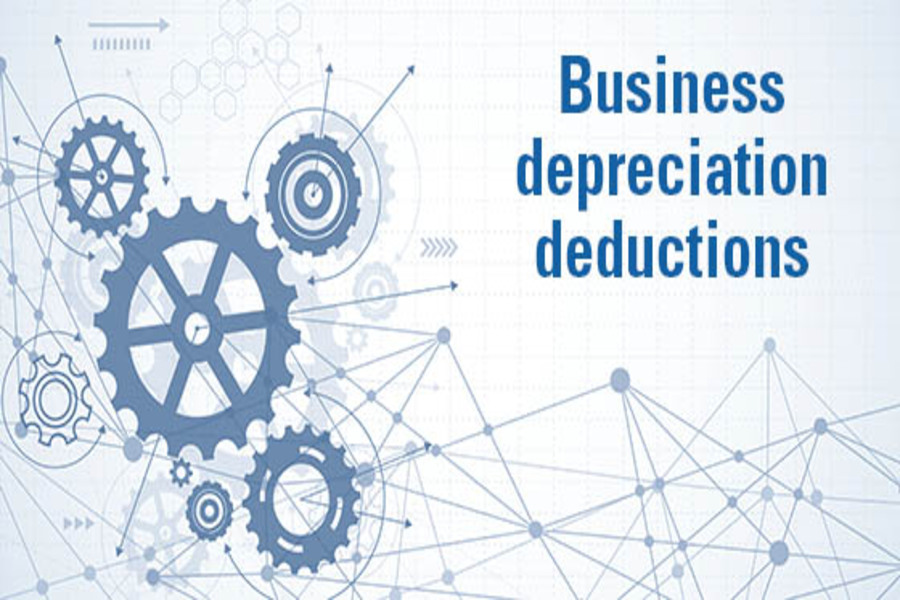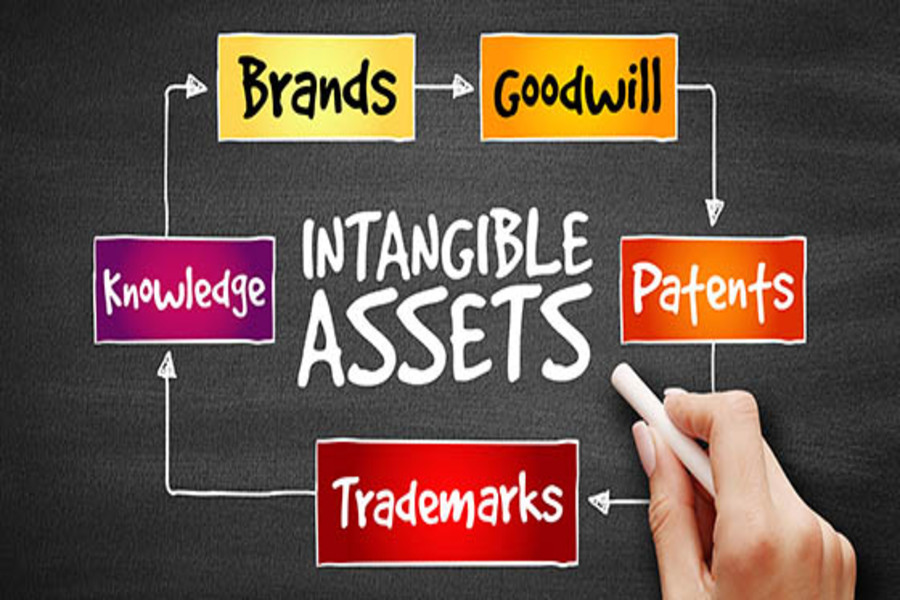The Tax Cuts and Jobs Act liberalized the rules for depreciating business assets. However, the amounts change every year due to inflation adjustments. And due to high inflation, the adjustments for 2023 were big. Here are the numbers that small business owners need to know. §179 deductions For qualifying assets placed in service in tax years beginning in 2023, the maximum §179 deduction is $1.16 million. But if your business puts in service more than $2.89 million of qualified assets, the maximum §179 deduction begins to be phased out. Eligible assets include depreciable personal property such as equipment, computer hardware and peripherals, vehicles and commercially available software. §179 deductions can also be claimed for real estate qualified improvement property (QIP), up to the maximum allowance of $1.16 million. QIP...

Reasonable compensation is an issue that comes into play in divorce, shareholder disputes and tax cases. It’s also a common financial statement adjustment that valuators make when valuing a business. Although experts are often hired to make the calculations, business owners and attorneys should understand how they do it. Multiple factors Valuators weigh a variety of factors when determining reasonable compensation for a specific business owner or executive, including: Role in the business. Many companies employ multiple executives, but they don’t all fill the same roles. Some are sales rainmakers, while others drive strategic direction or manage the day-to-day operations of the business. A valuator considers the experience and qualifications necessary to fill the individual’s specific job, as opposed to the qualifications the individual currently in the job...
Many homeowners across the country have seen their home values increase in recent years. According to the National Association of Realtors, the median price of existing homes sold in July of 2023 rose 1.9% over July of 2022 after a couple years of much higher increases. The median home price was $467,500 in the Northeast, $304,600 in the Midwest, $366,200 in the South and $610,500 in the West. Be aware of the tax implications if you’re selling your home or you sold one in 2023. You may owe capital gains tax and net investment income tax (NIIT). You can exclude a large chunk If you’re selling your principal residence, and meet certain requirements, you can exclude from tax up to $250,000 ($500,000 for joint filers) of gain. To qualify...
When criminals profit from illicit activities, they usually need to “clean” or disguise the proceeds of their crimes. Money laundering disconnects illegally acquired funds from sources that include theft, drug trafficking and terrorism. This makes it harder for law enforcement to connect the dots, arrest the perpetrators and seize their money. Unfortunately, money launderers often use innocent small businesses to clean their dirty money. In some cases, businesses might be pressured to participate in money laundering. How can you keep your business safe from these criminal activities? 3 stages Money laundering generally involves three stages: Placement. Here, criminals introduce their illegally obtained funds into the economy, making them appear legitimate. Strategies could include separating large amounts into smaller ones and depositing them in multiple accounts, including offshore accounts. ...
If you’re getting a divorce, you know the process is generally filled with stress. But if you’re a business owner, tax issues can complicate matters even more. Your business ownership interest is one of your biggest personal assets and in many cases, your marital property will include all or part of it. Transferring property tax-free In general, you can divide most assets, including cash and business ownership interests, between you and your soon-to-be ex-spouse without any federal income or gift tax consequences. When an asset falls under this tax-free transfer rule, the spouse who receives the asset takes over its existing tax basis (for tax gain or loss purposes) and its existing holding period (for short-term or long-term holding period purposes). For example, let’s say that under the...
If your employer provides life insurance, you probably find it to be a desirable fringe benefit. However, if group term life insurance is part of your benefits package, and the coverage is higher than $50,000, there may be undesirable income tax implications. You’re taxed on income you didn’t receive The first $50,000 of group term life insurance coverage that your employer provides is excluded from taxable income and doesn’t add anything to your income tax bill. But the employer-paid cost of group term coverage in excess of $50,000 is taxable income to you. It’s included in the taxable wages reported on your Form W-2 — even though you never actually receive it. In other words, it’s “phantom income.” What’s worse, the cost of group term insurance must be...
Let’s say you decide to, or are asked to, guarantee a loan to your corporation. Before agreeing to act as a guarantor, endorser or indemnitor of a debt obligation of your closely held corporation, be aware of the possible tax implications. If your corporation defaults on the loan and you’re required to pay principal or interest under the guarantee agreement, you don’t want to be caught unaware. A business bad debt If you’re compelled to make good on the obligation, the payment of principal or interest in discharge of the obligation generally results in a bad debt deduction. This may be either a business or a non-business bad debt deduction. If it’s a business bad debt, it’s deductible against ordinary income. A business bad debt can be...
Intangible assets — such as patents, copyrights, trademarks and customer lists — can have substantial value. But, unless they’re purchased from a third-party, you might not know what they’re currently worth. For example, if a business cultivates a well-known brand over several years using internal resources, it won’t appear on its balance sheet. Owners of intangibles need to know the value of these assets in various situations. For example, the value of intangible assets may be relevant when buying or selling a business, reporting acquired intangibles under U.S. Generally Accepted Accounting Principles (GAAP), licensing rights to or joint venturing with a third party, and litigating asset infringement or breach claims. The value of intangibles also can be important in matters such as divorce settlements and estate...
If you have family members with disabilities, there may be a tax-advantaged way to save for their needs — without having them lose eligibility for the government benefits to which they’re entitled. It can be done though an Achieving a Better Life Experience (ABLE) account, which is a tax-free account that can be used for disability-related expenses. The SECURE 2.0 law made changes that will allow more people to be eligible for these accounts, beginning in 2026. Eligibility rules ABLE accounts can be created by eligible individuals to support themselves, by family members to support their dependents, or by guardians for the benefit of the individuals for whom they’re responsible. Anyone can contribute to an ABLE account. While contributions aren’t tax-deductible, the funds in the account are...
When it comes to fraud, it may seem there’s nothing new under the sun. Unfortunately, fraud perpetrators are always finding novel ways to swindle businesses. Here are some recent scams — and how your business can protect against them. Influencer shakedowns Scam: So-called social media influencers ask restaurants and bars for complimentary meals and drinks in exchange for “free” publicity on platforms such as TikTok and Instagram. Some less-ethical influencers rack up big bills and fail to post anything about the businesses. Others accept money for “exposure packages” (to place a certain number of posts on various platforms) and then never deliver. Solution: If an influencer approaches you for a comp meal (or other free products or services), verify that the influencer has the number of followers claimed...
- 1
- 2
- 3
- 4
- 5
- 6
- 7
- 8
- 9
- 10
- 11
- 12
- 13
- 14
- 15
- 16
- 17
- 18
- 19
- 20
- 21
- 22
- 23
- 24
- 25
- 26
- 27
- 28
- 29
- 30
- 31
- 32
- 33
- 34
- 35
- 36
- 37
- 38
- 39
- 40
- 41
- 42
- 43
- 44
- 45
- 46
- 47
- 48
- 49
- 50
- 51
- 52
- 53
- 54
- 55
- 56
- 57
- 58
- 59
- 60
- 61
- 62
- 63
- 64
- 65
- 66
- 67
- 68
- 69
- 70
- 71
- 72
- 73
- 74
- 75
- 76
- 77
- 78
- 79
- 80
- 81
- 82
- 83
- 84
- 85
- 86
- 87
- 88
- 89
- 90
- 91
- 92
- 93
- 94
- 95
- 96
- 97
- 98
- 99
- 100
- 101
- 102
- 103
- 104
- 105
- 106
- 107
- 108
- 109
- 110
- 111
- 112
- 113
- 114
- 115
- 116
- 117
- 118
- 119
- 120
- 121
- 122
- 123
- 124
- 125
- 126
- 127
- 128
- 129
- 130
- 131
- 132
- 133
- 134
- 135
- 136
- 137
- 138
- 139
- 140
- 141
- 142
- 143
- 144
- 145
- 146
- 147
- 148
- 149
- 150
- 151
- 152
- 153











